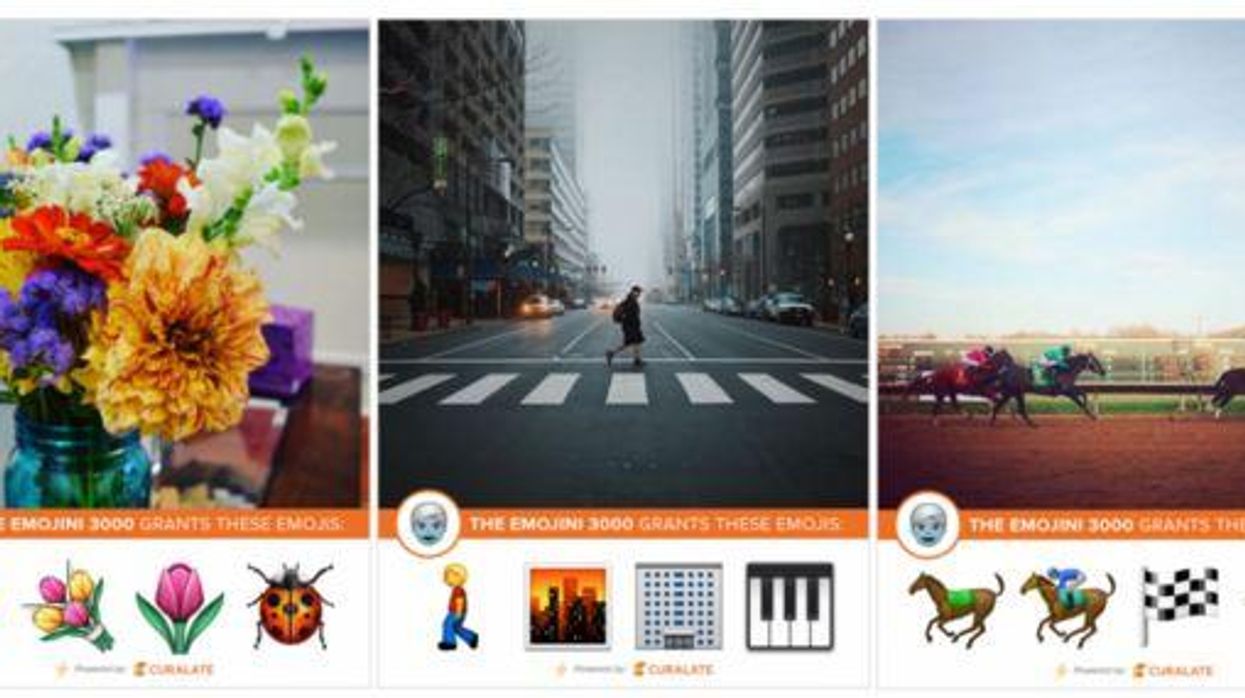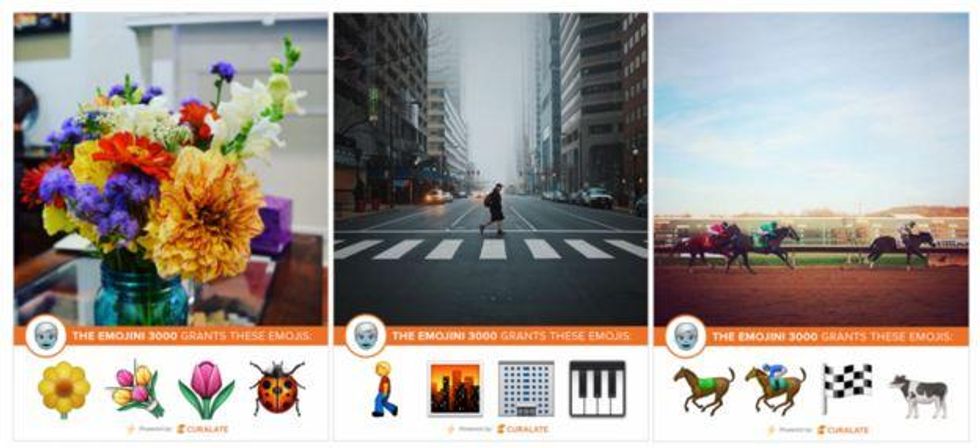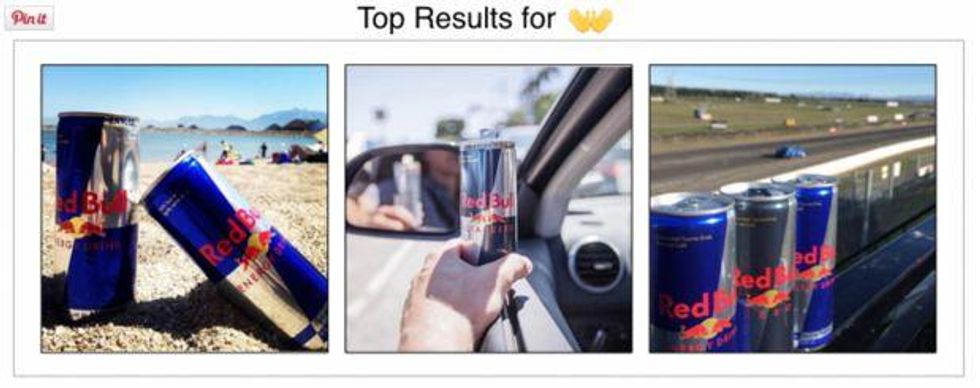Science & Tech
Caitlin Dewey
Feb 21, 2016

Recently, some engineers at the visual tech firm Curalate set out to make a tool that could automatically caption Instagrams with emoji. It was a chance to mess around with computer vision — complex models that consume such vast troves of data that they can recognise objects and suss out their meanings.
The tool, Emojini, did that pretty well: Given an Instagram of a bouquet, for instance, it would suggest the flower emoji. Given an Instagram of a horse race, it served up the horse and jockey.
But if you upload a picture of a can of Red Bull, for instance, Emojini associates it with the “open hands” emoji, not a glass or an ox. And if you upload a picture of a flower tattoo, it suggests a syringe — not a blossom, tulip, sunflower, rose or hibiscus.
In the course of developing the Emojini, Curalate’s engineers had accidentally cracked a little-discussed code: They had uncovered the secondary, non-semantic meanings for emoji — the ways people use certain symbols and icons that have nothing to do with their designer’s intent or the physical object that they correspond to in the real world.
Aside from the Red Bull/open hands and tattoo/syringe pairings, they found that the goat is typically used to caption photos of athletes (“greatest of all time” = G.O.A.T.) and the raised fist often accompanies Instagrams of people dirt-biking. People use the “busts in silouette” — they look like the Facebook icon — to mark selfies with strong backlighting. “Water closet” has become code for “woman crush.” The dash symbol = vaping.
Those all join a few non-semantic uses that most people know about already: the peach and eggplant emoji rarely refer to produce, for instance; the “100” symbol is, in the words of Vann R. Newkirk II, “a very black in-reference to the phrase ‘keeping it 100.’ ” In January, Quartz traced the rise of the key emoji, which basically denotes a life win — courtesy of DJ Khaled.
What’s really interesting about these results is that society has assigned specific meanings to emojis, even when they weren’t the intention of the emoji creator,” wrote Curalate’s lead research engineer, Lou Kratz. “The EmojiNet demonstrates that … emojis themselves are evolving into their own visual language.”
Incidentally, Kratz isn’t the only one probing the hidden depths of our emoji obsession. Both IBM and the Jozef Stefan Institute, a major European research centre, have recently published papers that try to nail down the sentiments that different icons express, based on analysing the contexts in which they’re most frequently used. Generally speaking, they both found that face emoji correspond to their respective emotions: in other words, a smiling face is positive, a frowning face negative.
But outside of faces, things get trickier. The ambulance skews slightly positive. (?!) The Japanese fish cake is the second most-negative emoji of all. The “low brightness” symbol is extremely beloved — an Instagram search suggests that people use it to tag pictures where there’s actually quite a lot of sun.
There’s no explaining these associations, necessarily, except to say that people don’t always use emoji semantically: There’s an extra layer of abstract meaning, of unspoken communal agreement, that makes them slightly more than pictographs. Some linguists have compared emoji to onomatopoeia, words that sound like the thing they represent. In fact, it would appear that emoji sometimes look like the thing they represent, and they sometimes look like that thing’s opposite, and they (sometimes!) even look like a tangentially related third concept.
Don’t let this panic you, however: Perhaps the best thing about emoji and their communicative potential is that you can always impose your own meanings. I tried to figure out why the fish cake skews so negative, for instance — and all I learned was that people drop fish cakes on all kinds of distinctly non-fishy things.
More: Here's why these new Egyptian emoji could spell serious trouble
More: Vagina emoji are here and they are as spectacular as they are NSFW
Top 100
The Conversation (0)















